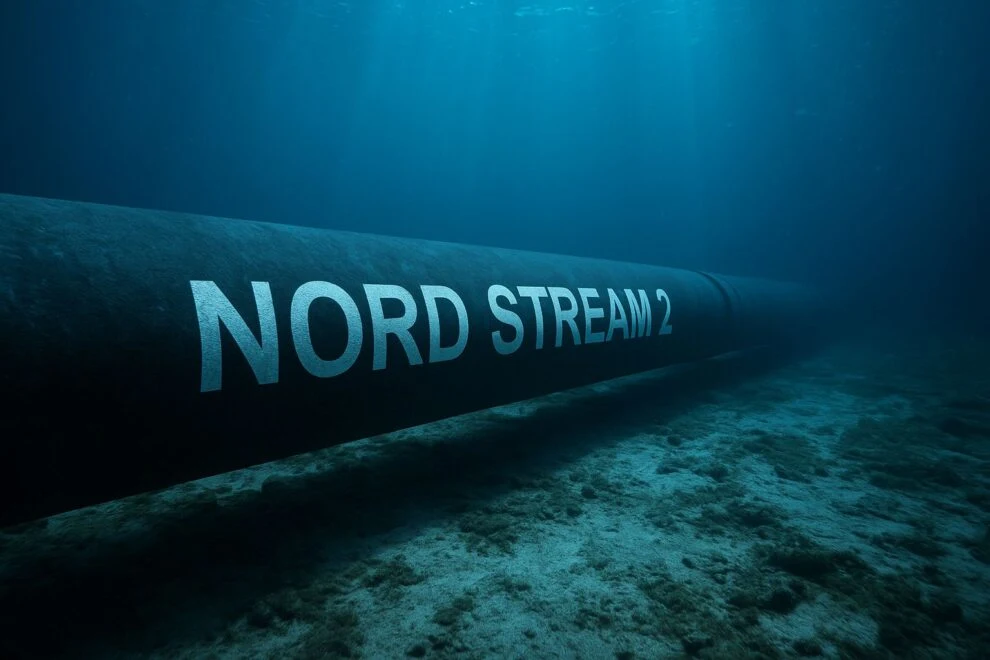Introduction to the Nord Stream 2 Debate
The Nord Stream 2 gas pipeline, a controversial project linking Russia to Germany under the Baltic Sea, is back in the spotlight. German Chancellor Friedrich Merz has firmly opposed reported plans between the US and Russia to relaunch the pipeline, citing energy security and geopolitical concerns. This article explores the latest developments, the pipeline's turbulent history, and a fascinating historical fact about the Baltic Sea.
Merz’s Stance on Nord Stream 2
German Chancellor Friedrich Merz has publicly rejected proposals to revive the Nord Stream 2 pipeline. Nord Stream 2 currently has no operating license, and this is not expected to change,
Merz stated, as reported by Die Zeit. His comments come amid reports of discussions between US and Russian envoys to restart the pipeline, potentially with American investors’ involvement.
The pipeline, completed in 2021, never became operational after Germany halted the project following Russia’s invasion of Ukraine in February 2022. The subsequent sabotage in September 2022, which destroyed parts of both Nord Stream 1 and Nord Stream 2, further complicated its future.
[](https://oilprice.com/Latest-Energy-News/World-News/Trumps-Secret-Plan-To-Restart-Nord-Stream-2-Sparks-Backlash-in-Germany.html)US-Russian Talks and Geopolitical Tensions
Recent reports suggest that the US and Russia are exploring a plan to revive Nord Stream 2, with American investors potentially buying gas from Russia and reselling it as American-branded
gas to Europe. Russian Foreign Minister Sergei Lavrov confirmed these talks, noting it would be interesting
if the US influenced Europe to accept Russian gas again.
These discussions have alarmed German politicians, who fear a return to reliance on Russian energy. The Nord Stream project has long been controversial, as it grants Russia significant influence over European energy supplies. The 2022 explosions, which released massive methane emissions into the atmosphere, underscored the pipeline’s vulnerability.
[](https://oilprice.com/Latest-Energy-News/World-News/Trumps-Secret-Plan-To-Restart-Nord-Stream-2-Sparks-Backlash-in-Germany.html)A Historical Fact: The Baltic Sea’s Sunken Treasures
The Baltic Sea, where Nord Stream pipelines lie, is a treasure trove of historical artifacts. In 2021, divers discovered a 17th-century shipwreck off the coast of Sweden, believed to be the Äpplet
, a warship designed by the same architect as the famous Vasa. This find highlights the Baltic’s role as a preserved maritime museum, with low oxygen levels protecting wrecks for centuries. This historical context adds intrigue to the Nord Stream debate, as the pipeline’s infrastructure navigates a sea rich with cultural heritage.
 |
| Source: AI Generated |
Political Reactions and Future Prospects
Within Germany, opinions on Nord Stream 2 are divided. Thomas Bareiss, a lawmaker from Merz’s CDU party, suggested earlier this year that relaunching the pipeline post-Ukraine peace deal could benefit Germany. However, his comments faced sharp criticism, with Social Democrat Michael Roth calling them the completely wrong signal at the completely wrong time.
Reviving Nord Stream 2 would require Berlin’s certification and agreement, a prospect that seems unlikely given Merz’s stance and the EU’s push for energy independence from Russia. The EU Commission has also stated it is not considering involvement in the pipeline’s revival.
[](https://www.euractiv.com/section/eet/news/nord-stream-repair-us-russia/)Conclusion
The Nord Stream 2 controversy underscores the complex interplay of energy, geopolitics, and security in Europe. As Friedrich Merz stands firm against the pipeline’s revival, the future of Russian gas in Europe remains uncertain. With the Baltic Sea’s historical significance adding depth to the debate, the world watches as Germany navigates its energy future.
By Planet-Today.com | Published: May 16, 2025
Via AFP
Nord Stream 2, Friedrich Merz, Germany energy, Russia gas, US Russia talks, Baltic Sea, Ukraine war